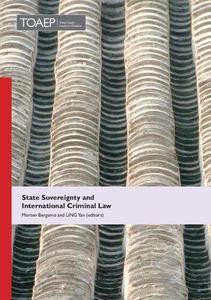
State Sovereignty and International Criminal Law By Morten Bergsmo (editor), Yan LING (editor)
2012 | 300 Pages | ISBN: 829308135X | PDF | 6 MB
'State sovereignty' is often referred to as an obstacle to criminal justice for core international crimes by members of the international criminal justice movement. The exercise of State sovereignty is seen as a shield against effective implementation of such crimes. But it is sovereign States that create and become parties to international criminal law treaties and jurisdictions. They are the principal enforcers of criminal responsibility for international crimes, as reaffirmed by the complementarity principle on which the International Criminal Court (ICC) is based. Criminal justice for atrocities depends entirely on the ability of States to act. This volume revisits the relationship between State sovereignty and international criminal law along three main lines of inquiry. First, it considers the immunity of State officials from the exercise of foreign or international criminal jurisdiction. Secondly, with the closing down of the ad hoc international criminal tribunals, attention shifts to the exercise of national jurisdiction over core international crimes, making the scope of universal jurisdiction more relevant to perceptions of State sovereignty. Thirdly, could the amendments to the ICC Statute on the crime of aggression exacerbate tensions between the interests of State sovereignty and accountability? The book contains contributions by prominent international lawyers including Professor Christian Tomuschat, Judge Erkki Kourula, Judge LIU Daqun, Ambassador WANG Houli, Dr. ZHOU Lulu, Professor Claus Kreß, Professor MA Chengyuan, Professor JIA Bingbing, Professor ZHU Lijiang and Mr. GUO Yang.
Links are Interchangeable - No Password - Single Extraction



